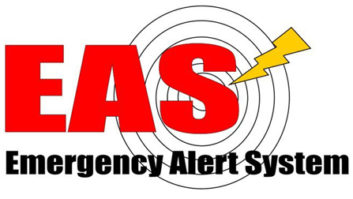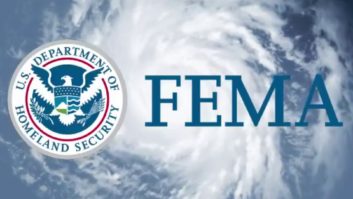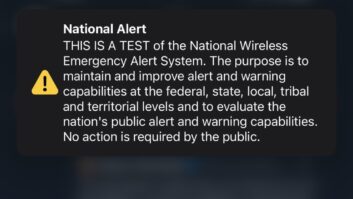Update 3/21: Monday’s Required Weekly Test (RWT) from the Federal Emergency Management Agency was not sent out to radio stations. FEMA told EAS stakeholders in an email Tuesday morning it is currently working on the issue and that the government agency does not have an estimate for resolution.
The following story reports on the recent and ongoing technical difficulties FEMA has experienced sending the RWT.
Broadcasters’ EAS units should be receiving the Required Weekly Test (RWT) from FEMA on Monday after weeks of difficulties.
The RWT has been rejected by most EAS units and declared “invalid” since late February due to an expired digital certificate, FEMA says. However, that issue has been fixed and today’s 11:00 a.m. Eastern RWT should log properly.
A FEMA spokesperson says the digital certificate the government agency uses to sign its automated RWT messages expired on Feb. 20, 2023, but it has now been renewed.
Mark Lucero, chief for IPSAW engineering, sent an email to broadcasters earlier this month clarifying the technical irregularities: “The issue does not affect EAS messages sent by state/local agencies, it only affected the Integrated Public Alert and Warning System (IPAWS) automated RWTs,” he wrote.
For those stations that did log a failure, their EAS device is configured and working as expected, Lucero said. If your station has a DASDEC and it looked like a normal test, check your EAS device configuration and enable signature checking, says FEMA.
Because the IPAWS automated RWT process is generated internally, it does not pass through the initial signature checking routine as it does with the more than 1,700 Authorized Alert Originators, according to FEMA. “That’s the reason RWTs signed with expired certificates were posted to the Emergency Alert System feed,” the agency says.
All Authorized Alert Originators’ Common Alerting Protocol (CAP) messages are signed with a digital certificate previously provided to them by FEMA.
IPAWS uses digital signatures to ensure the authenticity of messages, according to FEMA. The IPAWS system checks the digital signature upon receipt and accepts or rejects the message. A CAP message signed with an invalid or expired certificate is normally rejected during this initial signature checking routine and does not appear on the EAS feed.
FEMA, which coordinates the federal government’s role in preparing for, preventing and responding to domestic disasters, says the long-term fix is for the agency is to assess its certificate management process and make improvements to prevent future issues.
FEMA says it will also look at possible benefits of including a validation check for the automated RWT process.










